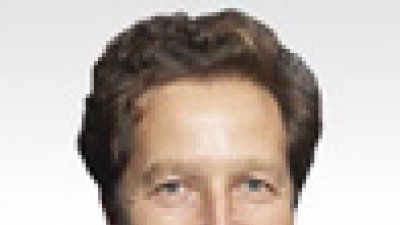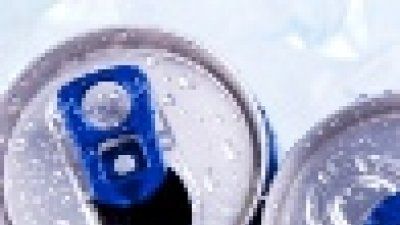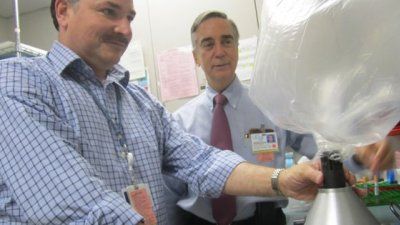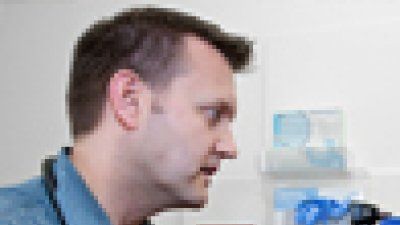University of California San Francisco
Give to UCSF-
-
Gene Test May Help Determine Early Lung Cancer Survival
-
Gene Test May Aid Early-Stage Lung Cancer Patients
-
New Lung Cancer Test Predicts Survival
In the two largest clinical studies ever conducted on the molecular genetics of lung cancer, an international team led by scientists at the University of California, San Francisco (UCSF) has demonstrated that an available molecular test can predict the likelihood of death from early-stage lung cancer more accurately than conventional methods.

-
Some Breast Cancer Spread May Be Triggered By Targetable Protein, Study Shows
Scientists from the University of Helsinki, Finland, and UCSF have identified a cleaver-wielding protein that frees some tumor cells, allowing them to further misbehave. The discovery points to a new target for therapy.

-
Stem Cell Odyssey Leads from Tusks and Teeth to Gut
<p>Medical geneticist Ophir Klein's studies of stem cells in tooth development and of stem cell changes in the gut may lead to new strategies for regenerating teeth and for treating craniofacial abnormalities.</p>

-
How Many Lives Could a Soda Tax Save?
A group of scientists at UCSF and Columbia University estimates that slapping a penny-per-ounce tax on sweetened beverages would prevent nearly 100,000 cases of heart disease, 8,000 strokes and 26,000 deaths every year.

-
Stem Cell and Gene Therapy for Sickle Cell and other Genetic Diseases
<p>A cure for sickle cell anemia and other life-threatening genetic disorders that arise in the blood is the goal of a new $6.7-million, five-year research project headed by UCSF scientist Y. W. Kan, a pioneer of modern genetics and the diagnosis of genetic diseases before birth.</p>

-
UCSF Study Finds Medical Marijuana Could Help Patients Reduce Pain with Opiates
A UCSF study suggests patients with chronic pain may experience greater relief if their doctors add cannabinoids – the main ingredient in cannabis or medical marijuana – to an opiates-only treatment.

-
Our Microbiomes, Ourselves
-
New Generation Clinic Helps Disadvantaged Teens With Family Planning
<p>The New Generation Health Center, which seeks to reduce the number of unintended pregnancies and sexually transmitted infections among high-risk youth in San Francisco, is hosting a fundraiser on December 1 to support its community outreach activities.</p>

-
AIDS Prevention 2.0: A Historic Opportunity to Halt HIV
<p>As we mark World AIDS Day this week, the U.S. Centers for Disease Control (CDC) and Prevention reports that more than a million Americans now live with the disease, and every year some 50,000 people in the United States alone are newly infected.</p>

-
UCSF Works to Improve Lives of Oakland Middle-School Students
<p>UCSF, the Oakland Unified School District and an array of community-based partners are embarking on a quest to improve the lives of disadvantaged middle-school students, thanks to a $1.75 million grant from The Atlantic Philanthropies.</p>

-
Deadly Skin Cancer Genes Identified
-
Microbe Research Harnesses Power of DNA Mapping Tools to Explore Metabolism and Disease
<p>Microbes that dwell within us can help or harm us, according to UCSF experts at "Gut Check," a lunchtime panel discussion hosted by UCSF as part of the Bay Area Science Festival last week.</p>

-
Fewer CA Kids Overweight, but Bay Area Struggles
-
Community Rallies Around South Tahoe Soccer Coach and Player Diagnosed with Rare Cancer
-
Clinical Trial Shows First Evidence That Anal Cancer is Preventable
A large, international clinical trial led by doctors at UCSF indicates that a vaccine to prevent anal cancer is safe and effective, according to a study reported in the October 27, 2011 issue of New England Journal of Medicine.

-
Aging Disease in Children Sheds Light on Normal Aging
<p>Aging of individual cells in the body leads to aging of the whole person, according to new evidence from studies of very rare children born with a genetic mutation that wrinkles, ages and kills them before they reach adulthood.</p>

-
Malaria Discovery Gives Hope for New Drugs and Vaccines
An investigation into the mysterious inner workings of the malaria parasite has revealed that it survives and proliferates in the human bloodstream thanks in part to a single, crucial chemical that the parasite produces internally.

-
Progress Fighting Malaria: A Timeline
<p>Malaria is an infectious disease caused by a parasite transmitted from person to person by the bite of a mosquito. In the past two centuries, numerous research and public health efforts worldwide have sought to combat this ancient scourge as this timeline shows.</p>

-
UCSF Team Takes Third Place in AIDS Walk San Francisco
<p>The UCSF team came in third place overall in AIDS Walk San Francisco 2011 raising $55,000 in the annual event to benefit HIV/AIDS programs and services in the San Francisco Bay Area.</p>

-
What Steers Vampires to Blood
Scientists have known for years that when vampire bats tear through an animal’s skin with their razor-sharp teeth, their noses guide them to the best spots – where a precise bite will strike a vein and spill forth nourishing blood. But nobody knew exactly how bats knew where to bite – until now.

-
UCSF Team Shows Spirit at AIDS Walk San Francisco
<p>The UCSF team showed its spirit in the 25th Annual AIDS Walk San Francisco, which drew more than 25,000 walkers and raised more than $3 million to benefit HIV/AIDS programs and services in the Bay Area.</p>

-
NIH Director Says Timing Right to Reengineer Translational Science
<p>Francis Collins, director of the National Institutes of Health (NIH), describes the scientific goals and functions of the National Center for Advancing Translational Sciences (NCATS), a proposed new entity of the NIH that will strive to reengineer the process of developing drugs, diagnostics, and devices. </p>

-
Brain Research at UCSF Aims to Help Distracted Remember
<p>UCSF cognitive neuroscientist Adam Gazzaley has used functional brain imaging and EEG studies to discover that older adults fare worse than younger adults at remembering following distractions. He hopes to improve their performance with cognitive training, using a newly developed video game.</p>

-
Translational Research Begins to Explain Chronic Health Problems Associated with Intimate Partner Violence
<p>Janice Humphreys, a associate professor of Family Health Care Nursing, is working with an interdisciplinary group of UCSF colleagues to study the long-term health and aging effects of intimate partner violence with funding made possible by UCSF’s Clinical and Translational Science Institute.</p>

-
UCSF Team Describes Genetic Basis of Rare Human Diseases
Researchers at UCSF and in Michigan, North Carolina and Spain have discovered how genetic mutations cause a number of rare human diseases, which include Meckel syndrome, Joubert syndrome and several other disorders.

-
Mining the Human Body with Michael Fischbach, PhD
<p>Having developed an algorithm that discovered a large quantity of drug-producing bacteria in and on humans, Fischbach has turned his lab’s attention to studying their populations and interactions with each other. This, he posits, can greatly influence a person’s overall health and disease.</p>

-
Treating Disease Before Birth with Tippi MacKenzie, MD
Stem cell transplantation may hold the promise to treating many diseases before birth such as sickle cell anemia and muscular dystrophy. But first, researchers need to overcome many barriers, including rejection of stem cell transplants by the fetus. MacKenzie’s lab recently discovered that mothers’ T cells are responsible for rejecting the grafts and that this rejection may be avoided by using stem cells from the mother.
